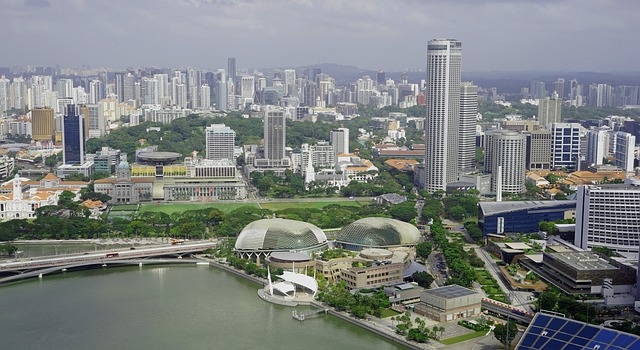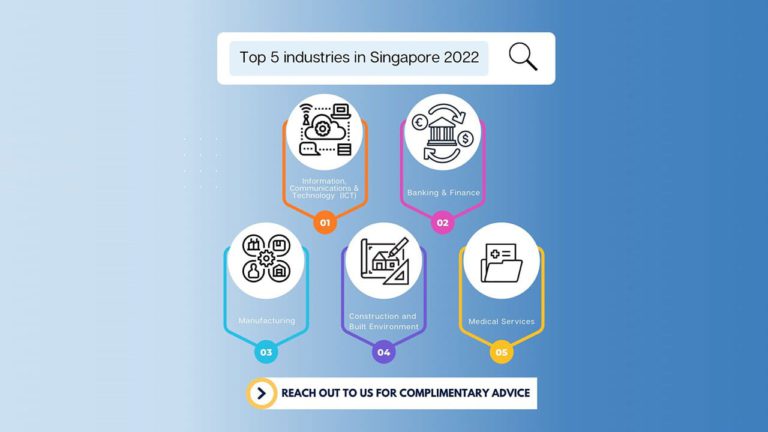Singapore has long been the leading financial hub in Southeast Asia, attracting high-net-worth individuals (HNWIs) and ultra-high-net-worth individuals (UHNWIs) seeking to establish family offices. However, Malaysia has recently introduced initiatives to position itself as a competitive alternative. Will Malaysia competing for family offices affect Singapore’s wealth inflows?
The Rise of Family Offices in Singapore
Singapore has solidified its reputation as a premier destination for family offices due to its robust regulatory framework, political stability, and attractive tax incentives. The city-state offers the Variable Capital Company (VCC) structure, tax exemptions under the Enhanced-Tier Fund Scheme (13X) and Singapore Resident Fund Scheme (13R), and an extensive network of double taxation agreements. Furthermore, its well-established financial ecosystem, high-quality lifestyle, and security make it a preferred choice for global wealth management.
Malaysia’s Bid to Attract Family Offices
Malaysia has implemented several strategic initiatives to attract family offices to Johor, focusing on the development of special economic zones and offering attractive incentives:
Forest City Special Financial Zone (SFZ)
In September 2024, Malaysia designated Forest City in Johor as a Special Financial Zone (SFZ) to stimulate economic growth and attract investment. A key feature of this initiative is the introduction of a 0% tax rate for family offices establishing themselves within the SFZ, making Forest City the first location in Malaysia to offer such an incentive. This move is aimed at positioning Johor as a competitive destination for wealth management services.
Johor-Singapore Special Economic Zone (JS-SEZ)
In January 2025, Malaysia and Singapore agreed to establish a special economic zone in Johor to enhance cross-border economic collaboration. The JS-SEZ aims to attract global investment by offering tax breaks and facilitating the seamless flow of goods and people between the two countries. This initiative is expected to create 50 projects and 20,000 skilled jobs within five years, spanning sectors such as manufacturing, aerospace, tourism, energy, and healthcare. The collaboration underscores a mutual strategy to leverage each other’s strengths and deepen economic linkages.
Medini Iskandar Malaysia
Medini Iskandar Malaysia is a 2,230-acre urban township development in Iskandar Puteri, Johor, planned to become the Central Business District of the area. With a projected population of 450,000 by 2030, Medini offers a conducive environment for business operations, including family offices. The development includes various themed zones such as Medini North, which houses LEGOLAND® Malaysia Resort and Gleneagles Medini Hospital, and Medini Business District, which is planned to include office spaces and residential buildings.
These initiatives collectively enhance Johor’s appeal as a strategic location for family offices, offering favorable tax incentives, robust infrastructure, and a supportive regulatory environment.
Key Differences Between Malaysia and Singapore’s Financial Landscape
Malaysia and Singapore are both positioning themselves as attractive destinations for family offices and wealth management. However, their financial landscapes differ significantly in several key areas, influencing investor confidence and business decisions.
-
Regulatory Environment
Singapore: Strong Regulatory Framework
Singapore’s Monetary Authority of Singapore (MAS) ensures a highly transparent, well-regulated, and internationally recognised financial environment. The MAS requires strict compliance with anti-money laundering (AML) and know-your-customer (KYC) regulations, ensuring investor protection and confidence. Family offices in Singapore must meet capital and investment thresholds, ensuring credibility and attracting ultra-high-net-worth (UHNW) clients.
Malaysia: Evolving Regulatory Structure
Malaysia’s financial sector is regulated by Bank Negara Malaysia (BNM) and the Securities Commission Malaysia (SCM), but its framework is perceived as less mature than Singapore’s. While Malaysia is making strides in simplifying regulations to attract investment, there are still concerns about bureaucratic inefficiencies and occasional regulatory inconsistencies. Foreign investors may perceive higher risks due to past governance issues and policy shifts.
Singapore’s stronger investor confidence makes it a preferred choice for international wealth management, whereas Malaysia still needs to build its global reputation in regulatory transparency.
-
Tax and Incentives
Singapore: Favorable Tax Environment
Singapore offers attractive tax incentives under schemes like the 13O and 13U tax exemptions, which allow family offices to manage funds tax-free under specific conditions. Also, Singapore’s no capital gains tax, low corporate tax (17%), and robust double taxation agreements (DTAs) with over 80 countries are highly attractive for UHNW clients.
Singapore’s unique Variable Capital Company (VCC) framework also provides an efficient structure for family offices and fund management, making the country a leading hub for wealth preservation.
Malaysia: Competitive but Less Established Tax System
Malaysia’s Labuan model offers low tax rates (3% on net profits) and is positioned as an offshore financial hub. However, it lacks the same international reputation as Singapore.
Malaysia’s Forest City Special Financial Zone (SFZ) now offers 0% tax for family offices, directly competing with Singapore. Malaysia’s tax policies have faced occasional unpredictability, with previous government shifts impacting investor confidence.
Singapore’s well-tested tax-efficient structures still provide greater certainty for long-term wealth management, whereas Malaysia’s newer incentives may take time to gain global trust.
-
Infrastructure and Ecosystem
Singapore: Advanced Financial Hub
Home to over 2,000 family offices, major global banks, hedge funds, and private equity firms.
Well-developed legal and financial advisory services, making it a one-stop-shop for ultra-high-net-worth individuals (UHNWIs). Cutting-edge digital banking and fintech solutions, strengthening its role as Asia’s financial centre.
Malaysia: Developing but Still Catching Up
Malaysia is investing heavily in Iskandar Malaysia and Forest City to create a new financial hub in Johor. Meanwhile, the financial ecosystem is still growing, with fewer international banks and top-tier asset management firms compared to Singapore.
Malaysia is also expanding its fintech and Islamic finance sector, which could be a unique advantage in attracting Middle Eastern and ASEAN investors.
-
Talent Pool
Singapore: Leading Global Financial Talent Hub
Attracts world-class financial professionals, fund managers, and legal experts due to its strong financial sector, especially with relevant Work Passes such as Employment Pass (EP), Personalised Employment Pass (PEP), Overseas Networks & Expertise (ONE) Pass.
A highly skilled and internationally competitive workforce, driven by government policies favoring foreign expertise. Global universities and financial institutions collaborate closely with Singapore’s industry, ensuring a pipeline of top-tier talent.
Malaysia: Facing Talent Retention Challenges
Malaysia struggles with worker drain, where top financial professionals move to Singapore or other global financial centres, causing limited access to specialised financial expertise, making it harder for Malaysia to compete at the same level.
Malaysia is working on incentives to attract and retain talent, but the financial workforce still lacks the same global recognition as Singapore’s.
Synergy Between Singapore and Malaysia
As borders become increasingly permeable for capital and talent, the Singapore-Malaysia corridor stands out as a natural axis for family office growth in Asia. For HNW families who value connectivity, cultural familiarity, and operational flexibility, setting up a family office in one country while residing in the other offers the best of both worlds – proximity without compromise.
For high-net-worth (HNW) individuals in Southeast Asia, the decision to establish a family office is often shaped by a unique blend of strategic, lifestyle, and legacy considerations. Singapore and Malaysia—two neighboring nations with deep cultural and historical ties—offer a compelling cross-border proposition that is increasingly attractive to wealthy families looking to optimise governance, access premier financial services, and preserve generational wealth.
1. Close Geographic Proximity
One of the most significant advantages is the sheer geographical closeness between Malaysia and Singapore. With travel times between Johor Bahru and Singapore measured in minutes, and regular flights connecting Kuala Lumpur with Singapore in under an hour, cross-border operations are highly feasible. Many HNW individuals live in one country while maintaining significant business and family interests in the other—making it easy to manage a family office presence on either side.
This proximity allows for seamless:
- Cross-border meetings and operations
- Access to professionals (lawyers, tax advisors, asset managers) from both jurisdictions
- Real-time management of assets and investments across two economic landscapes
2. Ease of Access and Infrastructure
Singapore has established itself as a global wealth management hub, supported by robust legal frameworks, investor-friendly regulations, and world-class infrastructure tailored for family offices. Malaysia, meanwhile, offers competitive advantages in terms of cost, a growing financial services ecosystem, and access to a large pool of bilingual, skilled professionals.
Whether an HNW family resides in Johor Bahru or Singapore, access to key resources—including airports, digital infrastructure, and talent—is smooth and dependable. Additionally, both countries offer attractive residency and tax incentive programs that can complement family office structures, such as:
- Malaysia’s Malaysia My Second Home (MM2H) program
- Singapore’s Global Investor Program (GIP)
3. Cultural and Linguistic Familiarity
Malaysia and Singapore share deep cultural roots, particularly among the Chinese, Malay, and Indian communities. This shared heritage makes it easier for HNW families to feel at home in either jurisdiction, with language, cuisine, customs, and business etiquette providing a familiar backdrop.
Furthermore, many professionals in both countries are multilingual, fluent in English, Mandarin, Malay, and Tamil—providing seamless communication with advisors, bankers, and legal teams. This ease of cultural and linguistic integration reduces friction and enhances trust in cross-border collaborations.
4. Complementary Strengths for Holistic Wealth Strategy
Many families choose a dual-jurisdiction strategy, leveraging:
- Singapore for investment management, succession planning, global banking access, and legal structuring
- Malaysia for philanthropic initiatives, lifestyle investments, family businesses, and cost-efficient back-office functions
This approach not only diversifies risk and enhances control, but also maximises the benefits of both regulatory ecosystems.
Is Malaysia a Serious Competitor?
While Malaysia is making strides in attracting family offices, it still has a long way to go before it can directly compete with Singapore. However, Malaysia does present niche advantages, particularly for those interested in Islamic finance, lower costs, and residency benefits.
Singapore remains the dominant player for family offices in Southeast Asia, but Malaysia is emerging as an alternative, especially for those seeking cost efficiency and Islamic financial services. Rather than direct competition, Malaysia’s strategy appears to complement Singapore’s, offering more diversified choices for UHNWIs in the region.
For enquiries on setting up a family office in Singapore, Whatsapp to +65 8766 1966 or email to info@iasg.com.sg.







